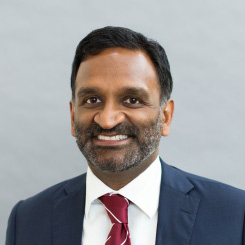“Recycle or go to Hell, warns Vatican”. “Vatican Increases List of Mortal Sins”, “Vatican lists ‘new sins’, including pollution”. These were three of the most sensationalist headlines in yesterday’s English-speaking press, picking up on an interview with a Vatican official published in L’Osservatore Romano on Sunday.
The official, Bishop Gianfranco Girotti, is the second-in-command at the Apostolic Penitentiary (despite the name, it is not a jail but the Vatican office responsible for issues relating to the forgiveness of sins in the Roman Catholic Church). The bishop spoke the day after the Penitentiary concluded a course for confessors. The bulk of the interview dealt with matters concerning canon law and the sacrament of confession, items of little interest to the general public. But the bishop also spoke about some new forms of social sin. Here are the relevant questions and answers:
Sometimes people do not understand the Church’s (issuing of) indulgences and Christian forgiveness? Why do you think it is that way?
Today it seems that repentance is taken to mean opening one’s self to others when resolving issues found within his or her own special social sphere, within which one expresses his very own existence, and does so by offering his own contribution of clarification and support for those having such problems. Repentance, therefore, today takes on a (special) social dimension, due to the fact that relationships have grown weaker and more complicated because of globalization.
In your opinion, what are the “new sins”?
There are various areas today in which we adopt sinful behavior, as with individual and social rights. This is especially so in the field of bioethics where we cannot deny the existence of violations of fundamental rights of human nature – this occurs by way of experiments and genetic modifications, whose results we cannot easily predict or control. Another area, which indeed pertains to the social spectrum, is that of drug use, which weakens our minds and reduces our intelligence. As a result, many young people are left out of Church circles. Here’s another one: social and economic inequality, in the sense that the rich always seem to get richer, and the poor, poorer. This [phenomenon] feeds off an unsustainable form of social injustice and is related to environmental issues –which currently have much relevant interest.
(Download an English translation of the entire interview [PDF].)
Anyone reading these passages can see that the Church is not proposing any new list of mortal sins, and certainly did not list “obscene wealth” and “pollution” as matters to be confessed by the faithful. The bishop simply referred to the social consequences of sin, some of which seem to be exacerbated by an increasingly inter-connected world.
So how did the American and British press reports get it so wrong? Back in February 2007, John Allen of the National Catholic Reporter wrote an incisive piece about irresponsible reporting at the Vatican, and there is even an entire website, GetReligion.org, devoted to this problem.
Having worked in the Vatican for several years, I know many of the beat reporters, including some of those who botched this social sin story. Most have absolutely no interest in the larger theological or philosophical issues discussed at high levels, so in a way this is all the fruit of culpable ignorance.
But real damage is done to the Church and her flock by such slipshod reporting. Knowledge of Catholic social doctrine has surely suffered and people who may otherwise be interested in the Church have been driven away, all in the name of an eye-catching headline.
Thankfully, not all the news is bad. Institutions such as the Pontifical University of the Holy Cross have started seminars to train journalists in reporting on the Church, though it seems not all the English-speaking ones in Rome have yet been able to attend.

